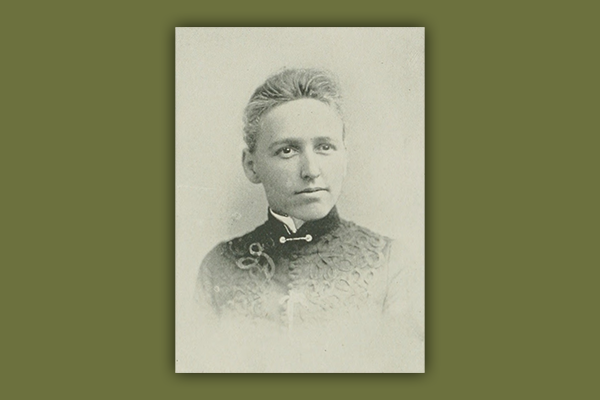In 1977, the Christian singer Anita Bryant and a group of conservative political operatives founded “Save Our Children, Inc.” in Dade County, Fla. Contrary to what its name suggested, this new coalition had no interest in saving children. Its true mission was to repeal a Florida ordinance that banned discrimination in the areas of housing, employment, and public accommodation based on sexual orientation. Bryant and her allies believed they could turn public opinion against the ordinance by framing queer people as a threat to the nation’s youth and quickly planted their predator narrative throughout the local media. In her 1977 autobiography The Anita Bryant Story, Bryant stated that “Homosexuals cannot reproduce—so they must recruit. And to freshen their ranks, they must recruit the youth of America.”
The strategy worked. The law was overturned by a crushing majority vote and wouldn’t be reinstated for another 20 years. Following the success of the “Save Our Children” campaign, other high-profile Christian leaders like Jerry Falwell Sr. and Franklin Graham would take up Bryant’s insidious, anti-gay playbook. The lie that “Homosexuals cannot reproduce, so they must recruit,” would become a rallying cry for countless conservative movements. Now, almost five decades after Bryant’s crusade, conservative Christians are once again using this poisonous rhetoric to demonize the LGBTQ community.
Recently, Florida House Bill 1557, more commonly known as the “Don’t Say Gay Bill,” was signed into law by Republican Gov. Ron DeSantis. Speaking from a podium adorned with the slogan “Protect Children, Support Parents” DeSantis, a Catholic, wasted no time vilifying the bill’s critics as sexual indoctrinators. He was hardly the first to do so. During the initial backlash to the legislation, Christina Pushaw, DeSantis’ press secretary tweeted from her personal Twitter account that opponents of H.B. 1557 were probably sexual groomers: “If you’re against the Anti-Grooming bill, you are probably a groomer or at least you don’t denounce the grooming of 4-8 year-old children.”
It didn’t take long for other conservative Christians to pick up this script, with influential figures like Andrew T. Walker, Allie Beth Stuckey, and Rod Dreher joining the fray.
These events highlight how H.B. 1557 and its groomer narrative are built entirely on fear and prejudice. Multiple studies have definitively proven that there is no link between homosexuality and pedophilia. Furthermore, discussing same-sex relationships is no more coercive than discussing opposite-sex ones. Despite the scientific evidence, data and reason tend to be discounted when it comes to combating the groomer narrative.
But when individuals confront their friends, colleagues, and neighbors about the dishonesty of these narratives, it adds a personal element to the hard evidence. This allows people to put a face they know to the conversation, dispelling the nebulous boogeyman lurking in their minds. Unfortunately, this also means that LGBTQ people, particularly students, are the ones shouldering the brunt of the burden when it comes to confronting and disproving these false narratives. This leaves an already vulnerable group open to harassment and intimidation.
It's impossible to communicate just how degrading and exhausting these attacks are for queer people. Members of the LGBTQ community have spent entire lifetimes fighting for the right to simply be treated as human beings and, through it all, they have constantly had to push back against the lie that their very existence is a threat to children.
This lie is so pervasive, so deeply rooted in the public psyche, that gay author David Sedaris even chronicled his experiences with it in the essay “Chicken in the Henhouse.” Sedaris assists a young boy back to his parents’ hotel room right after listening to a radio program where a caller suggests that gay people prey on young children. Wanting to prove something to the caller, society, and even himself, Sedaris walks the kid back to the room to prove that he is “as good as the next guy.” The observations in Sedaris’ essay are as prescient in 2022 as they were when originally published in 2004.
These latest attacks have been relentless and are often propelled by individuals who identify as Christian. This hateful rhetoric doesn’t just destroy lives and alienate people, it also betrays the very message on which the gospel is founded.
In the book of Genesis, God affirms that all human beings are made in God’s image (Genesis 1:26). Each of us is fearfully and wonderfully made, possessing inherent worth, and deserving of dignity. This theological point has been an indisputable part of Christianity for generations. It is also a point that conservative Christians are fond of reciting. But the image of God demands more from us than a mere acknowledgment of worth. Throughout his ministry, Christ raised up those who were treated with indignity and set them as equals among his followers. And when custom or politics prevented others from receiving this recognition, Jesus broke down the barriers that kept them out.
Consider the Samaritan woman: When Jesus meets her in John 4, she’d had five husbands — which would not have been something to be proud of at that time — and she was romantically involved with a sixth man outside of marriage. She was also a Samaritan — an ethnic and religious minority — which made Jesus, a Jew, speaking with her highly taboo. For the disciples, she was a living embodiment of everything their culture taught them to despise.
Yet while others chose to stay away, Jesus saw her inherent value and made her a messenger of his good news (John 4:39-42). After his ascension into heaven, Christ’s disciples carried on his work by affirming the humanity of those whom society despised (Acts 8:26-40) and challenged laws that sought to reject others from the community (Acts 10).
When Christians support hostile laws that smear queer people as “groomers” or champion book bans that portray LGBTQ literature as “pornographic,” they are ultimately turning their back on the image of God. We cannot claim to stand for truth while gleefully embracing lies to further a political agenda. Most of all, we cannot profess to love God while ignoring God’s command to love our neighbor as we love ourselves (Mark 12:29-31).
Scripture tells Christians that we are to put off falsehood and speak truthfully — to rid ourselves of bitterness, anger, slander, and every form of malice (Ephesians 4:25-32). If we are to meet this calling, we must condemn the groomer narrative with all our strength and conviction. Otherwise, the church will become a place absent of Christ.
Got something to say about what you're reading? We value your feedback!






